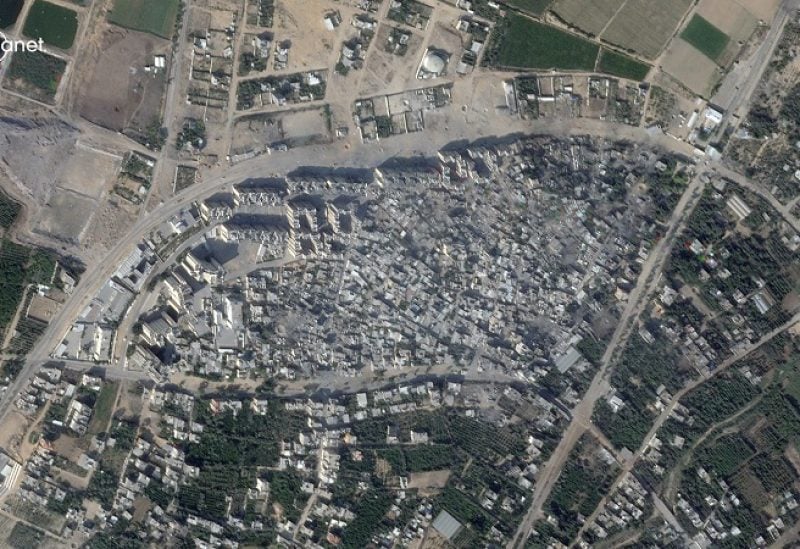
Satellite view of heavily damaged areas from Israeli strikes in the Palestinian city of Beit Hanoun, northern Gaza Strip, October 14, 2023 in this handout image. Planet Labs PBC/Handout via REUTERS THIS IMAGE HAS BEEN SUPPLIED BY A THIRD PARTY. NO RESALES. NO ARCHIVES. MANDATORY CREDIT
Despite Israeli threats to enter Gaza by land and warnings of the region igniting if a ground war on Gaza commences, well-informed diplomatic sources still do not foresee Israel resorting to a ground war in this area. The reason for this is that nuclear weapons can serve as a deterrent for both parties to avoid a significant escalation and the expansion of the battlefield to encompass all fronts. This would establish a balance of terror that forces all actors in the region to reconsider their actions before any such decision.
Sources indicate that the danger does not lie in the possibility of resorting to nuclear weapons and their use because that is unlikely. Instead, the real danger arises when matters deviate from their course, posing an actual threat to nuclear security by tampering with nuclear assets through military operations. This places nuclear reactors at risk and, along with them, the fate of millions in the region. The nuclear energy can be tampered with by fighters, infiltrators, or any fifth column, or through military errors during any major war. It is known that the Iranian nuclear program is no longer out of reach, and there is an engineering team prepared for it. Additionally, Israel possesses the Dimona reactor. Therefore, the presence of nuclear weapons or the nuclear capabilities leading to a nuclear bomb can be a reason to deter the idea of a ground war and a reason to bring diplomacy back to the region, either through the proposed summits or any diplomatic action leading to a decision from the Security Council to end the war on Gaza and establish a new status quo, which could be extended depending on the international and regional political circumstances.
There is absolutely no decision to resort to nuclear weapons. However, an unintended nuclear explosion resulting from an expansion of the war is a possibility, which could lead to mass and comprehensive human casualties. No one can guarantee its prevention, similar to the unexpected explosion in Hiroshima.
It is evident that beneath Gaza, there is another Gaza, and ground operations are not straightforward. Moreover, in this situation, all Israeli hostages would be used as human shields exposed to airstrikes and shelling, something that Tel Aviv cannot accept because it would result in the deaths of all of them. Can Israel take such a risk? On the other hand, Israeli artillery bombardment cannot eliminate Iranian factions within Gaza. Dealing with them through a ground offensive poses major and dangerous obstacles.
Decisions will be made in the coming hours, as there are pressures and counter-pressures, whether political, security-related through naval vessels and aircraft carriers, or economic, as suggested by the issue of halting gas exploration in the Lebanese waters. The counter-pressures are also coming from Iran and Hezbollah, which, if the war escalates, could extend its rocket attacks into the Galilee, going beyond Gaza. Any escalation of the war will plunge the Arab situation into internal conflicts connected to the unity of the arenas. Currently, there are strong international pressures to halt the war machine. Will these efforts succeed?